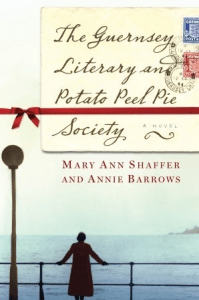Recently, I was able to read a pre-publication copy of a book about grieving by Amanda Held Opelt, and I’m happy to share my thoughts about it here. Especially since Amazon in its wisdom wouldn’t let me post my review because they’d noticed “unusual activity” on the book. (Ah, yes, a strong pre-marketing campaign by the publisher, God forbid. I’m almost glad to see this happens to traditional publishers as well as self-publishers.)
Anyway, as I noted in my longer Goodreads review,
This is an interesting exploration of grief and the rituals associated by … the surviving sister of Rachel Held Evans, the wonderful Christian writer who died tragically young when her case of the flu turned deadly. Opelt has also suffered miscarriages and worked in war and disaster zones around the world, so she’s also familiar with loss in other ways.
If you are a Christian (perhaps especially someone in a liturgical tradition), you may take great comfort in this candid discussion of grieving. If you’re not, you may still find it hopeful and moving, but the religious content may be a bit much for you.
…Each chapter devotes itself to a tradition, one that we carry on today or one that we have lost or that is specific to various cultures 0r times (examples include keening, covering the mirrors, telling the bees, etc.). Sometimes it’s a bit academic; other times it’s heart wrenching to read about Opelt’s actual experiences with actual losses. It’s probably not a book to read all at once, given the subject matter, but to work through over a period of time.
Reading it reminded me of some other books I’ve read on the topic. My favorite is A GRIEF OBSERVED, by C.S. Lewis. I have to admit a lot of Lewis’s popular theology books, like MERE CHRISTIANITY, don’t do much for me. They strike me as glib and smug and full of arguments by analogy.
But in A GRIEF OBSERVED, all that is torn away in favor of telling the painful truth about a devastating loss and what it does to Lewis’s relationship with God. You get to really watch the man wrestle with darkness, and you can’t help but be moved by it. (The movie SHADOWLANDS does a good job of representing this on the screen, though it’s more about the whole relationship.)
A very nontraditional book on the subject, one that claims it is fiction, although I have my doubts, is NO ONE IS TALKING ABOUT THIS, by Patricia Lockwood. As noted in my longer Goodreads review:
At first, with this book, I thought I was reading extremely disjointed but often funny, sometimes just glib takes on the internet, here called “the portal.”
…Eventually, however, a heartbreaking and heartwarming story of hope and loss and family and humanity emerged. Ultimately, I found it very moving. Recommended if you can cope with a nontraditionally-told story that is very much grounded in (and commenting on) our time.
Grief for people and also for a community or a way of life is the undercurrent in the beautifully written THE HIRED MAN by Aminatta Forna. It’s about a bleak topic, yet retains a stubborn hope. Also quoting from my Goodreads review:
A remarkable novel about war and its aftereffects, set in an inland part of Croatia that was once part of Yugoslavia and saw some shelling and some genocide. And yet life goes on, until an English family blunders onto the scene years later and unknowingly sparks memories neither the town nor our narrator (their handyman and neighbor), nor the guiltiest parties still present necessarily want to relive. There’s joy but also rising tension.
If by any chance you’re as much of a fan of Tim Farrington as I am, you might also want to check out his self-published novel SLOW WORK (affiliate link), about a man who carves grave stones. I think it is beautiful, if not terribly commercial.
Far more commercial is the recent novel, REMARKABLY BRIGHT CREATURES (affiliate link) by Shelby Van Pelt, a warm small town novel about enduring grief, recovering family, and redeeming old losses. Also, there’s an octopus, and it’s wonderful.
So, any recommendations from you? I’d love to hear them.

 I recently received an email with a lovely review of
I recently received an email with a lovely review of

